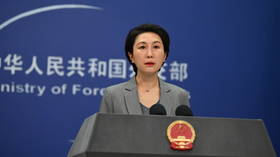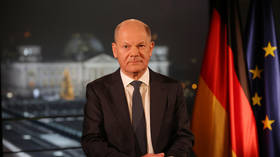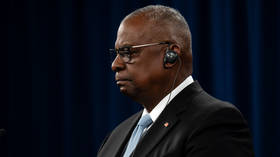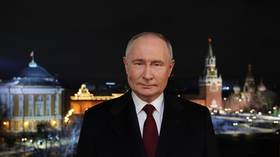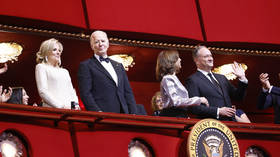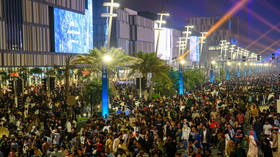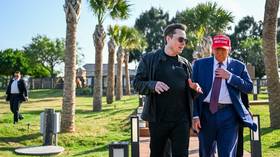Moscow looking for European “re-think” at Munich Security Conference
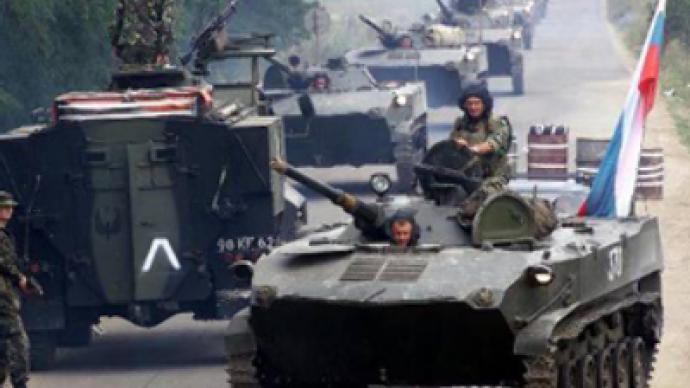
President Dmitry Medvedev met with members of the Munich Security Conference today to discuss prospects for a new European security architecture amidst a rapidly changing neighborhood.
The United States and Russia had their reset. Now will Europe and Russia get their re-think?
Today’s Munich Security Conference – a forum that was founded in 1962 by German publisher Ewald-Heinrich von Kleist-Schmenzin as a venue for discussing European and American security issues – is the latest effort by President Medvedev to draw attention to the need for a new comprehensive European security treaty that will extend its coverage from “Vancouver to Vladivostok.”
Medvedev's proposal for a new pan-European security treaty could work if agreed upon, said Wolfgang Ischinger, the chairman of the Munich Security Conference (which included other high-ranking officials and political analysts, including Carl Bildt, Minister of Foreign Affairs of Sweden; Zbigniew Brzezinski, former US National Security Advisor; and Michael McFaul, Special Assistant to the US President and Senior Director for Russian and Eurasian Affairs).
“The European security system, which we’ve had for the last decade or two, has not worked very well," Ischinger told the assembly. "That was probably the reason why President Medvedev made fundamental proposals regarding an evolution of this security system. I think he is right in addressing these issues."
Ischinger’s comments echoed the reaction of Germany’s Angela Merkel and France’s Nicolas Sarkozy, who met President Medvedev in Deauville, France, on Tuesday.
But old habits die hard. Therefore Moscow understands that this will be no easy sell.
Meanwhile, President Medvedev told the participants that it would be a mistake to confuse modern Russia with its Soviet antecedent. Relations with Europe are one of the most important directions of Russia’s foreign policy, he said.
“This was the case in the Soviet period, and this is the case now, although [some in the West] are trying to liken Russia to the Soviet Union – this is a big and serious mistake,” Medvedev was quoted by RIA Novosti as saying.
“I remember myself 25 years ago,” he said. “I was a different man, and although I thought then that I was a mature man who had already written Ph.D. thesis, I still had different views, in some ways more idealistic ones, in some ways I was less experienced.”
A great number of people in Russia “have gone the same path,” he continued. Medvedev then suggested that the West should overcome “the difficulties in the perception of processes that are happening in Russia.”
He also reassured some critics that the meeting in France was not an attempt to "split Europe," as some presumed. “I would not like such meetings as the one yesterday…to be considered an attempt to split Europe, to split the European Union, to cast doubt on genuine intentions of states taking part in such events,” he noted. “I think we all should act in accordance with the single European agenda.”
A time for change?
In light of the chinks now beginning to show in the armor of the US military machine, which is attempting to hold down forts in both Afghanistan and Iraq, many observers believe the time is ripe for a real re-think on European security.
Indeed, the European capitals have ignored the Russian part of the security equation for far too long. Now with the threat of terrorism on the rise, and the Iranian question looming, this is no longer a feasible option
The European-Russian relationship is being equally challenged by Washington’s determination to drop a missile defense system smack in the middle of Eastern Europe. Naturally, Moscow views such a move as a direct threat to its national security. These types of controversial activities are happening at the same time that a general thaw is taking place between Europe and Russia.
Yet the most significant changes in bilateral relations are happening almost as a matter of fate.
In April, Polish President Lech Kaczynski, together with his wife Maria and dozens of other political elite, was killed in a plane crash on the way to commemorate the Polish victims of the Katyn Massacre during World War II. The tragedy united Poles and Russians together in mutual mourning, which revealed the human side of nations that is too often concealed behind the lifeless pages of history books and jaded newspapers.
Before this tragedy, the Georgian conflict of August, 2008, reminded much of the world – albeit painfully slowly – that there is a knee-jerk tendency in the West to paint Russia as the villain, even when the facts on the ground suggest otherwise.
Indeed, for the first 72 hours of that bitter conflict, the Western media completely ignored the Russian side of the story. One Western news channel even had the audacity to set up cameras inside the office of President Mikhail Saakashvili, thus giving the Georgian leader 24-hour access to express his opinions before the global community.
Yet one year after the hostilities ended, the European Union released a 1,000-page report that blamed the Georgian side for starting the conflict with an early-morning missile attack on South Ossetia. But by then the PR damage was already done.
Little surprise, then, that calls for a European-Russian re-think regarding European-Russian security structures are gaining momentum.
“Russia celebrated a ‘reset’ in relations with the United States under President Obama,” commented one retired Russian diplomat who spoke on the condition of anonymity. “Now it is time for a ‘re-think’ on security measures between Russia and Europe. The Cold War is over; we really need to turn the page.”
New defenses for new realities
The Russian president proposed the creation of a new European security treaty in June 2008. In December, 2009, Russia delivered a copy of the draft treaty to the heads of states and organizations, including the headquarters of the North Atlantic Treaty Organization (NATO).
At the time of the document’s initial release, NATO Secretary-General Anders Fogh Rasmussen said he saw no need for the new security treaty proposed by Russia.
“I don’t see a need for new treaties or new legally binding documents because we do have a framework already,” he said at a news briefing in Moscow.
“We have already a lot of documents, so my point of departure is: ‘I don’t see a need for new treaties.’ But let me reiterate, we are of course prepared to discuss the ideas in the right forum,” he said.
The lukewarm response to Medvedev’s came as no surprise, since Moscow believes it is time that NATO, which many in the Russian capital perceive as a lumbering dinosaur from the US-Soviet ice age, should be phased out and replaced by a modern, European, security architecture. Of course Mr. Rasmussen has no desire to lose his job, especially during an economic crisis.
Meanwhile, the treaty would also place tough restrictions on the unilateral use of force by any nation, and this is certainly an amendment tailor made for the United States.
Thus, given this complicated background it will be interesting to see what will transpire when Medvedev attends next month’s NATO summit meeting in Lisbon.
“I will go to the Russia-NATO summit,” Mr. Medvedev said at the conclusion of the Deauville summit, formally accepting an invitation to the Nov. 19-20 meeting of the 28-member military bloc. “This will further the search for necessary compromises and the development of dialogue between the Russian Federation and the North Atlantic alliance as a whole.”
The possibility of Moscow co-operating with the alliance on a European missile defense shield was also floated, but Medvedev, wary of such empty promises in the past that usually awarded Russia nothing more than spectator status, said he would have to hear more details first.
“We are now evaluating the idea of this proposal, but I think that NATO itself needs to understand in what form it sees Russia joining this system, what it will bring, in what manner an agreement can be reached, and how to proceed further,” he said. “Only based on the evaluation of this proposal can we give an answer on how we will proceed with regard to the idea of European missile defense.”
Meanwhile, Munich Security Conference Chairman Wolfgang Ishchinger said the issue of Russia’s participation is not a technical question, but rather a political question.
"It is not a technical problem, but a core political issue,” he said at a news conference in Moscow on Wednesday, Interfax reported. “If this problem is to be resolved, mistrust must be overcome in relations between the Russian and Western military and politicians.”


